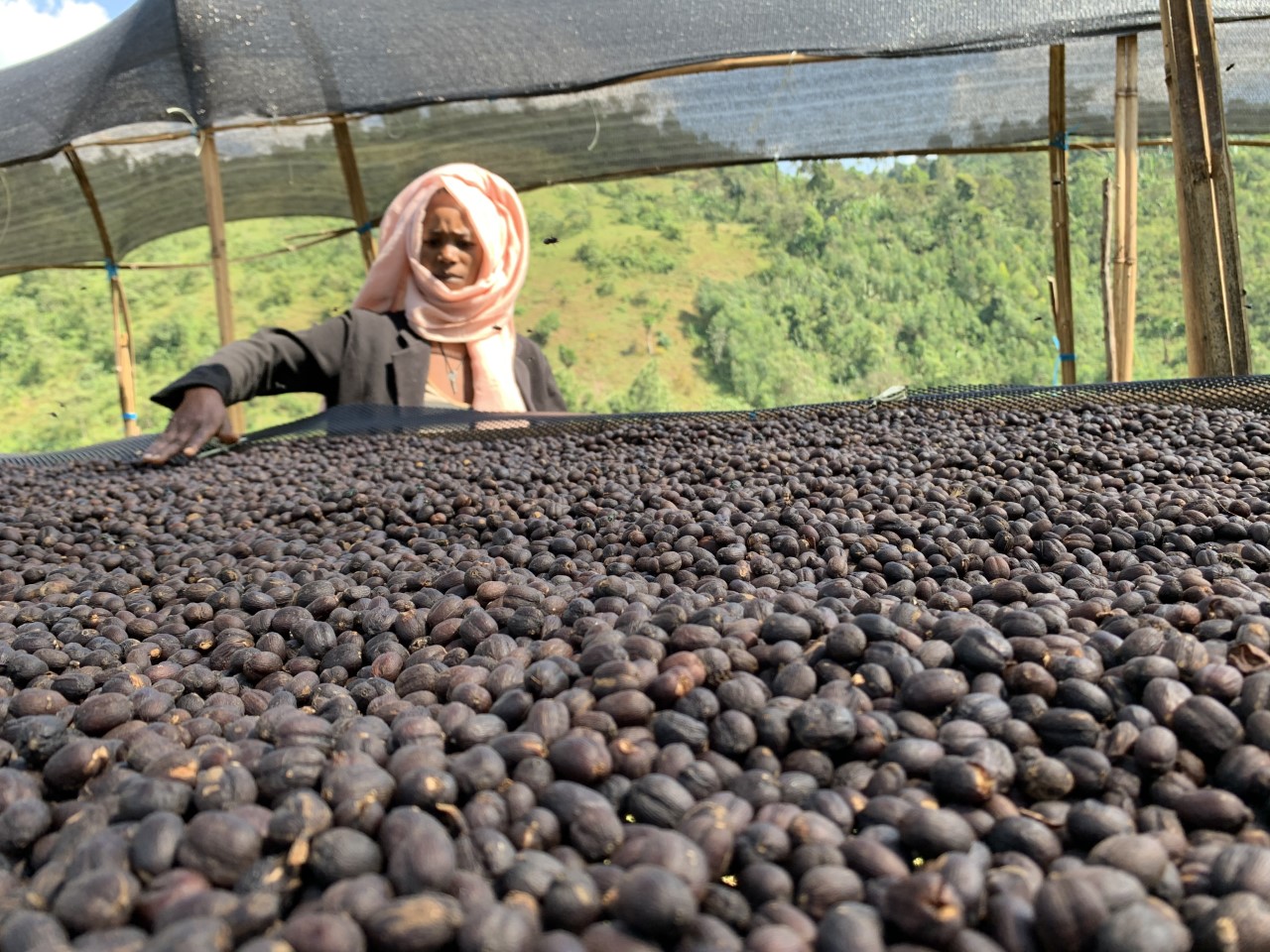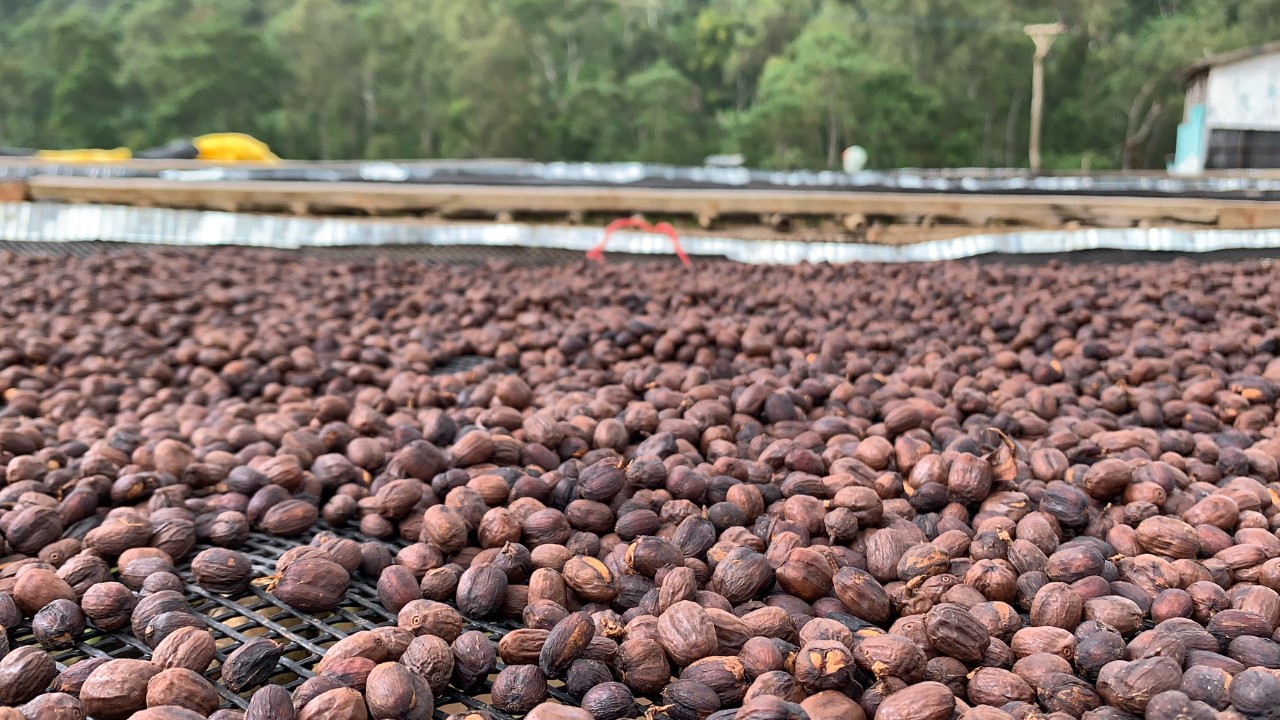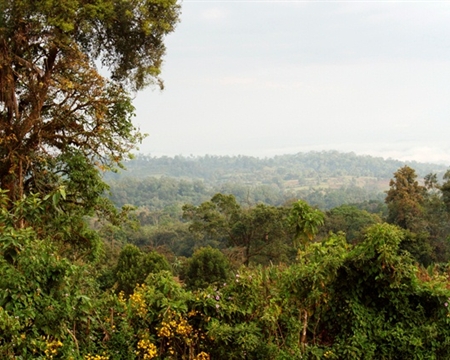1 Lb Ethiopia Shenta Wene Testi Ayla Carbonic Maceration Crown Jewel
Bags 0
Warehouses Oakland
Please Note this is a 1 LB bag of unroasted, green coffee.
Out of stock
About this coffee
Grower
Select producers organized around Faysel Yonis | Testi Ayla Washing Station
Altitude
1900 – 2100 masl
Variety
Kurume
Soil
Nitisols
Region
Shenta Wene kebele, Bensa woreda, Sidama Zone, Southern Nations, Nationalities, and Peoples’ Region (SNNPR), Ethiopia
Process
Coffee cherries are meticulously sorted and floated and then sealed in newly constructed airtight tanks for 24 hours before being placed on drying beds for approximately 19 days
Harvest
November 2019 - January 2020
Certification
Organic
Coffee Background
The climb from the southern end of the Great Rift Valley, through Shashamene and past Awasa is gradual, and coffee trees slowly increase in frequency, large, lanky, and dusty by the roadside, many so tall they lean on the roofs of houses for support. Coffees here are earlier than in the far south, delicate, and citric. Sidama has one of the most robust cooperative unions in the country with 53 member cooperatives, as well as a thriving industry of independent washing stations. Testi Ayla is one such independent, owned by Testi Coffee PLC and operated by Faysel Yonis.
The Testi Ayla washing station is located in Shenta Wene, a small community in eastern Sidama, close to the Harenna Forest preserve. The 1000 farmers delivering cherry to Testi Ayla average two hectares each in this area and some of the highest elevations in the whole of Sidama. There are three collection sites responsible for managing cherry delivery throughout the catchment area.
Testi Ayla processes equal volumes of both fully washed and natural coffees, and, especially in this case, has had success with micro-processing select volumes, drawing from some of the best fermentation knowledge in the coffee world today. This lot is a natural process aided by a highly delicate winemaking technique known as “carbonic maceration”: a unique curing stage that locks whole coffee cherries in a sealed tank deprived of oxygen for a 24-hour period. Because the fruit is whole and its environment is without air circulation or oxygen, carbonic maceration is essentially a custom-curing of each coffee seed in an enclosed bath of fruit jam, without any of the dehydration that would normally slow osmosis between the fruit and the seed. Once cured, the softened coffee cherries are taken directly to dry on raised beds under shade for a very gradual drying process of almost three weeks.
Oxygen-deprived, or “anaerobic” fermentation environments like the above have gained traction among processing wonks in coffee for the unique flavors and tanginess they can add, as well as creating wholly distinct flavors in the cup than those we’re used to. In this case, Testi Ayla has perfected a truly exemplary natural Sidama coffee with additional layers of fragrant juniper and fresh strawberry jam. The extra work here has paid off for sure, not to mention the investment in shelf life: the extended drying time and vacuum seal on the green will keep these layers locked in for months beyond expected.
One clear advantage to being a private processing team like Testi Ayla is the ability to invest in breakthrough techniques. However, it is no guarantee that your coffee will be improved by lengthy interventions to processing simply because they’ve succeeded a handful of times elsewhere in the world. By doing so a processor risks not only the volume of coffee used, but the trust of hardworking farmers whose livelihoods depend on a successful fermentation. Additionally, the expense of isolating multiple nanolots of green coffee through overland transport, dry milling, sampling, contracting, vacuum-packing, and shipment, requires constant attention and extra hands, especially in Ethiopia where this kind of small-scale exporting is almost never done. Royal’s investment in promoting these coffees is a shared mission with Testi Ayla—that historic coffees are worth it.




